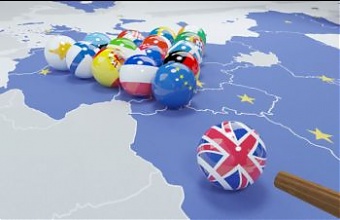Analytics, Economics, EU – Baltic States, Financial Services, Investments, Latvia
International Internet Magazine. Baltic States news & analytics
Saturday, 20.04.2024, 09:10
The euro appreciation in spotlight in 2017
 Print version
Print version |
|---|
Moreover,
Europe became appealing to investors when the national economies showed
unexpectedly healthy growth. This reversal of attitude of investors to European
assets has been quite vividly reflected in the euro exchange rate.
Up to early May, the main
forces affecting the euro were expectations on tightening of the FRS monetary
policy and results of the presidential elections in France. Later, the main
moving force became numerous positive economic data from Europe. By the end of
the summer, when the financial markets were giving less than a 50% chance of
the third hike of FRS rates this year, the focus shifted to the ECB.
In the first half of the year,
the ECB played a waiting game. However, positive data from Europe and scarcity
of assets applicable for the qualitative easing programme reduce the
probability of further inactivity of the central bank.
The rapid recovery in Europe
and expectation of a ECB’s move resulted in considerable appreciation of the
euro. As the exchange rate is one of the main transmission channels for
regulating inflation, speculation occurred that a strong euro can affect the
monetary policy plans of the ECB.
As for the ECB, it tried not
to publicly touch upon the strong euro issue. The speech of Mario Draghi at the
meeting of central bankers in Wyoming contained no mention of the appreciated
euro or other references to possible changes in monetary policy. Instead, the
ECB President talked about the issue of long-term prospects and justified
stronger regulation of financial markets. Still, some days later, rumours
appeared regarding the concern of some ECB governors regarding the rapid
appreciation of the euro.
Thus, the key topic for many
investors during the coming week will be the ECB meeting. According to the
recent survey of economists, changes to the quantitative easing programme will
take place in October. The most probable scenario is extension of the programme
and reduction of monthly purchases. At the September meeting of the ECB,
discussion of the programme is most likely to be started, without taking
specific decisions. The passiveness of the coming meeting is largely explained
by the forthcoming elections in Germany. Nevertheless, the communication of
Mario Draghi will be of great importance.
It has to be noted, that the
appreciation of the euro is a negative factor for exporters of commoditized
products (for example, producers of fertilizers) and is positive for importers
(for example, retailers). However, on an individual basis, the size of effect
and timing depends on the internal policy of hedging currency risks.








 «The Baltic Course» Is Sold and Stays in Business!
«The Baltic Course» Is Sold and Stays in Business!

